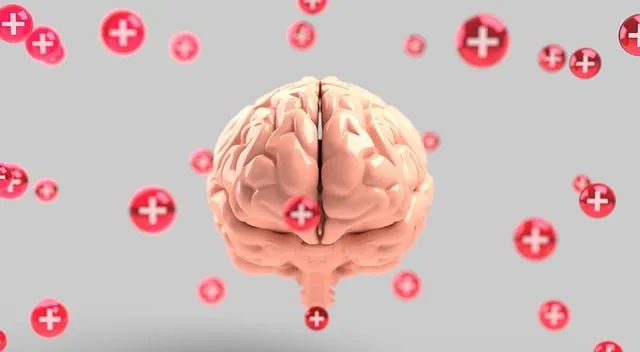Crisis Intervention Teams (CITs) at Superior Kaiser Permanente behavioral health services offer immediate, multidisciplinary interventions in diverse settings, enhancing patient care and outcomes. Specialized training for providers focuses on conflict resolution techniques like de-escalation and active listening, as well as compassion cultivation practices that promote emotional intelligence and trust. This comprehensive approach ensures superior care, equipping professionals with advanced skills to address complex needs effectively, leading to positive behavioral health outcomes.
In today’s complex healthcare landscape, Crisis Intervention Teams (CITs) play a pivotal role in supporting individuals facing severe emotional or psychological crises. This article explores the critical importance of CIT training programs for superior Kaiser Permanente behavioral health providers. We delve into the essential components that define effective training, highlighting how specialized education enhances patient care and outcomes. By examining Kaiser Permanente’s leadership in this area, we underscore the value of such initiatives for optimizing mental health services.
- Understanding Crisis Intervention Teams: A Vital Resource for Behavioral Health Providers
- The Role of Kaiser Permanente in Training and Support
- Essential Components of Effective Crisis Intervention Team Training Programs
- Enhancing Patient Care and Outcomes through Specialized Training
Understanding Crisis Intervention Teams: A Vital Resource for Behavioral Health Providers

Crisis Intervention Teams (CITs) are a vital resource for behavioral health providers, offering specialized support to individuals facing severe emotional or mental crises. These teams, often composed of trained professionals from various disciplines, provide immediate and effective interventions in settings such as hospitals, schools, and community centers. For Superior Kaiser Permanente behavioral health providers, CIT training is not just a professional development opportunity; it’s a key component in enhancing patient care and outcomes.
By equipping providers with the skills to assess and de-escalate high-risk situations, CITs enable superior care for individuals experiencing anxiety relief, emotional intelligence, and mental wellness. The integration of journaling exercises as part of this training further strengthens their ability to document and track patient progress, fostering a holistic approach to treatment. This comprehensive guidance ensures that providers are well-prepared to handle diverse crises, ultimately contributing to the improved health and well-being of those they serve.
The Role of Kaiser Permanente in Training and Support

Superior Kaiser Permanente behavioral health providers play a pivotal role in crisis intervention team (CIT) training programs. They offer specialized expertise and comprehensive Crisis Intervention Guidance, ensuring that participants are equipped with the skills to handle critical situations effectively. Through interactive workshops and practical exercises, these professionals foster Compassion Cultivation Practices among team members, boosting their confidence in managing high-stress scenarios.
The integration of Kaiser Permanente’s resources into CIT training enhances the overall quality and effectiveness of interventions. Their commitment to evidence-based practices and continuous support contributes significantly to building robust crisis response teams within various communities. This collaborative approach not only strengthens individual capabilities but also creates a network of resilient professionals ready to provide compassionate care during times of crisis.
Essential Components of Effective Crisis Intervention Team Training Programs

Crisis intervention team training programs should be designed to equip healthcare professionals with a comprehensive set of skills, fostering an environment where superior Kaiser Permanente behavioral health providers can effectively navigate and de-escalate crises. Firstly, these programs must emphasize Conflict Resolution Techniques, equipping teams with strategies to manage intense situations and facilitate open communication. By teaching de-escalation tactics, active listening, and constructive confrontation, healthcare providers become better equipped to resolve conflicts and promote positive outcomes for individuals in crisis.
Additionally, incorporating Compassion Cultivation Practices is vital. Training should encourage emotional intelligence by fostering empathy, compassion, and self-awareness among team members. Encouraging practices that cultivate mindfulness, perspective-taking, and compassionate responses enables healthcare providers to connect with individuals on a deeper level, building trust and creating a safe space for healing. Such training enhances the overall effectiveness of crisis intervention teams, ensuring superior care for those facing behavioral health challenges.
Enhancing Patient Care and Outcomes through Specialized Training

Specialized training programs play a pivotal role in enhancing patient care and outcomes for those seeking behavioral health services. At Kaiser Permanente, for instance, superior training initiatives equip behavioral health providers with advanced skills to address complex needs effectively. These programs delve into crucial areas such as communication strategies, fostering empathy, and understanding emotional healing processes. By integrating mind over matter principles, professionals learn to support patients in navigating challenging situations, ultimately improving their ability to cope and recover.
Through comprehensive training, Kaiser Permanente’s behavioral health providers gain insights into innovative practices that revolutionize patient care. This specialized education ensures that patients receive tailored interventions, fostering a safe space for emotional expression and healing. By embracing these advanced techniques, the organization strives to deliver exceptional services, reflecting its commitment to transforming lives and creating positive outcomes in the realm of behavioral health.
Crisis intervention team (CIT) training programs are a game-changer for superior Kaiser Permanente behavioral health providers. By equipping staff with specialized skills, these programs enhance patient care and outcomes, ensuring that folks receive the support they need during challenging times. The essential components outlined in this article, combined with the leadership and resources provided by organizations like Kaiser Permanente, can revolutionize navigating crises within the mental health landscape.






